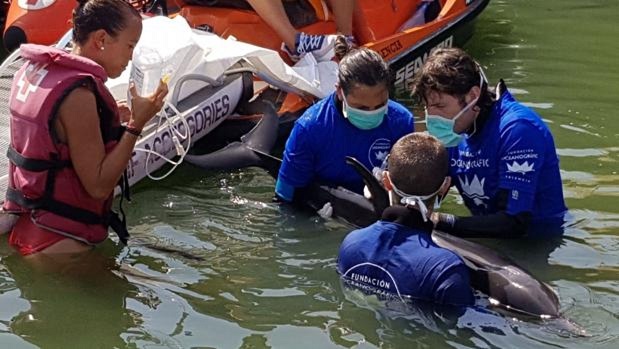A lethal virus effecting dolphins is lurking in the Mediterranean . This is the Morbillivirus, a pathogen that in the 1990s, killed more than 1,000 of these beautiful creatures and is, once again, affecting the bottlenose dolphin population.
There were mild outbreaks in 2007 and 2011, a new strain in 2012, and now the virus has arrived again from the Atlantic Ocean, causing a dozen animals to be stranded in Valencia and another six in Sicily.

Photo:ABC
The new variety in the Mediterranean is not spreading as quickly as the previous virus, so it is not producing outbreaks, but it is more deadly.
Although the origin of Morbillivirus is unknown, researchers from the Oceanogràfic Foundation point to pollution as a factor that boosts mortality as sea pollutants cause the dolphin’s immune system to weaken.
Neurological damage
The virus belongs to the measles family, or, as in the case of dogs, distemper. It does not, however, affect humans . It enters the respiratory tract, causing lesions in the lungs, and when the virus reaches the brain it is the end for the dolphin. Researchers tell us that “once it circulates throughout the body, it begins to produce neurological damage and causes seizures , problems with swimming and leads them to separate from their group. They can not eat and eventually die.”
Some of the dolphins that arrived alive on the Valencian coast already had symptoms and suffered seizures, so they died moments after they were rescued by the scientists.
This virus is only one of the threats suffered by cetaceans in the Mediterranean. Overfishing has caused them to move in search of food, which constantly causes conflicts between species that previously swam and hunted freely and now have to share their habitat. In addition, interaction with vessels, whether fishing or not, also results in stranded animals.

